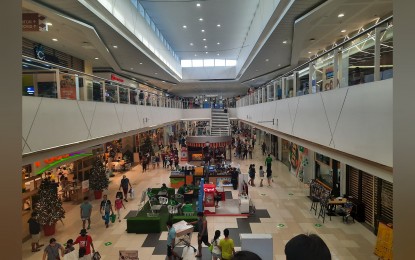
File photo
MANILA – Demand for commercial space is supporting the growth of the country’s property market with the easing of travel restrictions and recovery from the pandemic.
Real estate services company Santos Knight Frank reported Tuesday that vacancy rate in the commercial sector for the second quarter of 2022 was at 4.6 percent, which was close to pre-pandemic level.
Before the Covid-19 pandemic, vacancy rate for commercial space was at 3.6 percent in the fourth quarter of 2019.
“The easing of travel restrictions, pent-up demand for consumption, high vaccination rates, and the return to office (RTO) are all being cited for the recovery in brick-and-mortar retail, a sector that saw many businesses closing shop during the height of pandemic lockdowns,” Santos Knight Frank said in a statement.
For the upcoming stores in Metro Manila alone, 32.7 percent of commercial space takers are for the food and beverage sector and 32.1 percent are for clothing apparel stores.
“(T)he Philippines’ property sector is likely to see significant recovery in the next two to three years into the administration of President Ferdinand Romualdez Marcos, Jr., as demand returns on both commercial and residential property,” it added.
With the government’s directive to register business process outsourcing (BPO) firms to the RTO last April, Santos Knight Frank has also seen an increase in activity in the office market.
“Second quarter was the first quarter for many employees to return to the office. With that, we also saw an increase in leasing activity for the first time in a while,” Santos Knight Frank senior director for occupier strategy and solutions Morgan McGilvray said in a press conference.
However, vacancy rate in April to June 2022 period has remained high at 23 percent as 228,500 square meters of office spaces were added in Metro Manila in the second quarter of the year.
“Lastly, the Philippines, as with India, South Korea, Singapore, and most of Asia, is likely to see a greater rate of RTO for employees than the rate in developed Western economies. RTO in the Philippines is a result of both the office culture and the needs of its BPO occupiers,” the consultancy firm said. (PNA)
